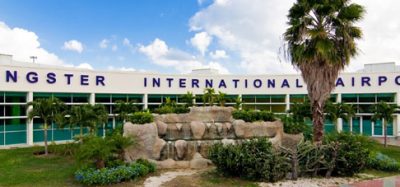Airports Venice Marco Polo and Quito achieve ACI Airport Health Accreditation
- Like
- Digg
- Del
- Tumblr
- VKontakte
- Buffer
- Love This
- Odnoklassniki
- Meneame
- Blogger
- Amazon
- Yahoo Mail
- Gmail
- AOL
- Newsvine
- HackerNews
- Evernote
- MySpace
- Mail.ru
- Viadeo
- Line
- Comments
- Yummly
- SMS
- Viber
- Telegram
- Subscribe
- Skype
- Facebook Messenger
- Kakao
- LiveJournal
- Yammer
- Edgar
- Fintel
- Mix
- Instapaper
- Copy Link
Posted: 28 August 2020 | International Airport Review | No comments yet
The accreditation highlights Venice and Quito Airports’ efforts in protecting the health safety of passengers during the COVID-19 pandemic.


Venice Marco Polo Airport (VCE) and Quito International Airport (UIO) have successfully obtained the Airport Health Accreditation granted by Airports Council International (ACI) World.
The ACI Airport Health Accreditation is based on the recommendations of the Council of the International Civil Aviation Organization (ICAO) to establish common sanitary measures and is aligned with the best practices of ACI, as well as with the safety protocol of aviation developed by the European Aviation Safety Agency (EASA).
Venice Marco Polo Airport
Venice Marco Polo Airport obtained an important recognition for its commitment in facing the spread of COVID-19. The accreditation certifies the effectiveness of the protocols and measures introduced by SAVE, the airport’s management company, which are fully in line with global guidelines.
From the beginning of the health emergency, SAVE set up a dedicated taskforce, which focused on the safety of passengers and workers with interventions that were investigated and positively evaluated by ACI. These include the organisation of spaces to guarantee social distancing, the increase in cleaning and disinfection activities in the areas, body temperature controls with thermoscanners, the distribution of sanitising gel inside the terminal, a new organisation of check in and boarding areas for both passenger distancing and operator protection, the supply of personal protective equipment to airport employees, dedicated signage for internal routes that have been partially modified, supplemented by frequent announcements and the constant updating of information on the airport site.
SAVE Group’s CEO, Monica Scarpa, said: “We are very proud of this result, which acknowledges the work carried out in these difficult months by all the staff of the airports managed by our group. The readiness in reacting to a new and constantly evolving situation has been supported by the strong cohesion between all the operators present in our airports and has allowed us to achieve high standards of health and hygiene, to the benefit of passengers and employees. In operational terms, the complexity of this experience, so full of unknowns and variables, will certainly constitute an important part of the overall organisational heritage of our airports.”
Quito International Airport
Andrew O’Brian, President and CEO of Quiport – operator of Quito Airport – said: “Quiport has worked diligently in the development of protocols and sanitary prevention measures for the Quito International Airport, and when we learned about the ACI accreditation programme, we immediately applied. We believe that it is essential to enact sanitary measures common to the industry to guarantee the safety of our passengers, airport personnel and the society as a whole.”
Accreditation is voluntary. The first step is for the airport operator to submit a detailed questionnaire that covers all aspects of the sanitary measures applied at the airport, collecting supporting material as evidence of the measures taken, such as operating procedures, forms, photographs and videos.
ACI then evaluates all of the information provided and, if it meets the parameters of the programme, the airport obtains the accreditation, which will be valid for one year. During this period, airports are required to perform periodic self-assessments and quality controls, leading to a cycle of continuous improvement as situations change and requirements evolve.
General Director of ACI World, Luis Felipe de Oliveira, when announcing the accreditation for Quito, extended a special congratulation to the Quito International Airport team: “After reviewing the evidence presented through our evaluation process, Quito International Airport has shown that it is providing a safe airport experience for all travellers, which is in line with the recommended health measures established in the ACI Aviation Business Restart and Recovery guidelines, as well as ICAO Council Aviation Recovery Task Force recommendations, along with industry best practices.”
Aspects evaluated in the programme include cleaning and disinfection, physical distancing (when feasible and practical), protection of airport personnel, physical distribution, communication with passengers, and passenger facilities. All passenger areas and processes are considered, including access ways to the terminal, check-in areas, security control, boarding gates, lounges, retail stores, food and beverage outlets, boarding bridges, escalators and elevators, immigration control areas and facilities (in collaboration with authorities), baggage drop-off area and departure from the arrivals area.
Related topics
Airport crisis management, COVID-19, Passenger experience and seamless travel, Safety, Terminal operations, Workforce
Related airports
Quito International Airport (UIO), Venice Marco Polo Airport (VCE)
Related organisations
Airports Council International (ACI World), Corporación Quiport, European Union Aviation Safety Agency (EASA), International Civil Aviation Organization (ICAO), SAVE Group


















